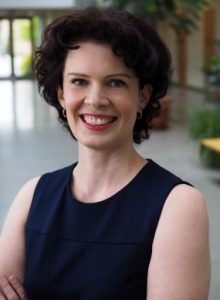 What has made your time at UBC the most memorable?
What has made your time at UBC the most memorable?
The people. In my time at UBC, I have met some amazing people, some of which continue to be my best friends and “aunties” to my children. The memories and experiences I have gained by engaging with fellow students and professors (within and outside of the nursing program) have helped shape the person I am today.
How are you applying the skills you learned through your studies at UBC?
Since graduating from the UBC Undergraduate Nursing program in 2004, I have worked as a Registered Nurse in British Columbia. Those values of engagement, justice, and equity, which the School of Nursing took time to instill, have been foundational to my practice. For example, when working on a surgical unit, I would engage with patients and families regarding pain management and provide education and advocate for services related to non-pharmacological and pharmacological methods of treatment. As I pursued graduate studies, again through the School of Nursing at UBC, I have had the opportunity to explore these values further in an academic setting. In my thesis topic area, I explored the representation of nursing concepts related to the care of patients with wounds, in a Canadian-endorsed standardized clinical terminology. This type of work is important to the profession of nursing and to the care of patients, as these standardized clinical terminologies are used to semantically share clinical information between disparate electronic health records. I have since applied and shared this newly acquired knowledge in my role as a Registered Nurse leading a community nursing documentation system within a local British Columbian health authority.
What advice would you give a student considering a graduate degree in nursing?
The advice I would humbly provide is to talk to those within the School of Nursing to ensure your career goals and expectations can be supported with this type academic endeavour. You might feel shy or hesitant to do this, but it is completely worth the time. I have found that almost everyone who is or who has been part of the graduate program would be happy to converse with interested and prospective students.
Plans for the future?
In the immediate future: sleep, then publish a manuscript of my thesis work.
For the long term, I will be starting my PhD in Nursing this fall at UBC (yes, I do love UBC). In my doctoral studies, I will further my inquiry into the integrative mapping between two standardized clinical terminologies with the intent to contribute to the science of computerized ontology harmonization. Again, this type of work is important as the advancement of electronic health records looks at these computerized clinical terminologies as components to facilitate interoperability, and thus, communication between health care applications.
How will you go on you to make a difference in our world?
The solution to an interoperable electronic health record will not be accomplished by one person — I hope to be one of many who work towards this goal, which I believe will help support the care provided to patients and families.
Photo and text provided by the Rising Stars Applied Science 2017 interviews